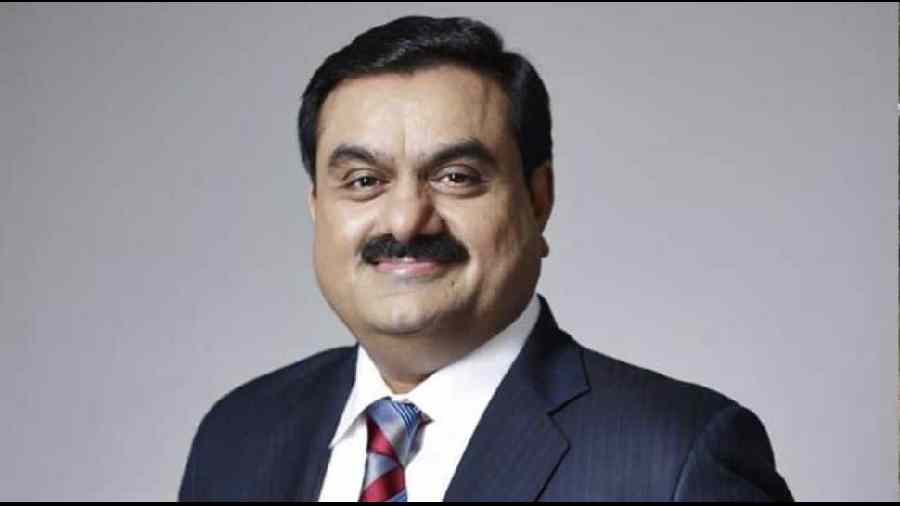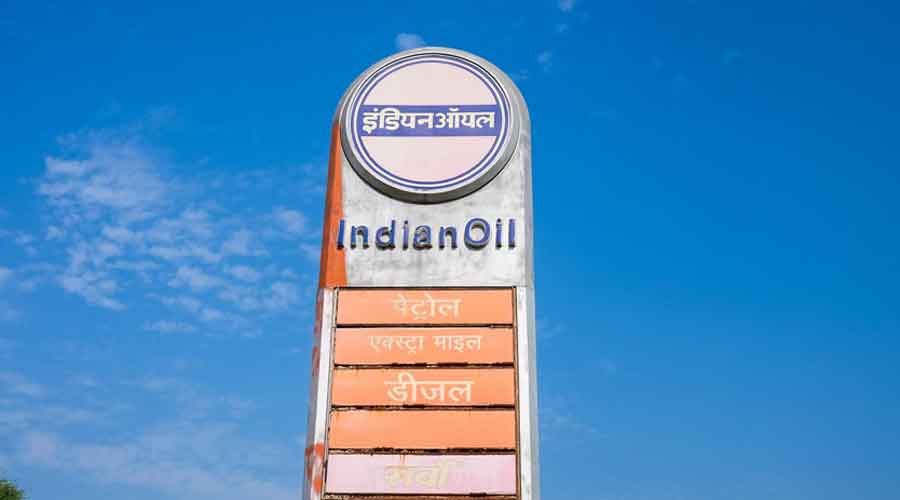The muck has started to fly.
On Thursday, Indian Oil Corporation (IOC) was forced to repudiate a claim that Adani Ports and SEZ Ltd (APSEL) had made in a presentation linked to its recent third quarter earnings announcement that the state-owned oil giant had signed a deal with the Adani group entity that contained a “take-or-pay liability” for using the terminal handling facilities at the Gangavaram port to unload imports of LPG.
A take-or-pay deal obligates buyers to pay a charge even if they decide later that they don’t want the goods or they don’t need to use the facility. The provisions benefit both parties by sharing risk. The deal with the Gangavaram port blew into a controversy after TMC leader Mahua Moitra alluded to a scam over the deal under which IOC hired the port facility without floating a tender, which was designed to benefit the embattled Adani group.
Tagging oil minister Hardeep Singh Puri and the Central Vigilance Commission (CVC) on Wednesday evening, Moitra said: “No tender. No CVC norms. Moving business from Vizag Port to Gangavaram. Skimming from coal, skimming from gas, now skimming from ‘chula’ in every household. Shame!” In a flurry of tweets, IOC said it had signed a non-binding memorandum of understanding (MoU) with the Gangavaram port.
“There is no take-or-pay liability or any binding agreement, as of now,” it said, with the addition of the adverbial phrase sparking speculation that it might come later.
In its presentation linked to its third quarter earnings released on February 7, Adani Ports and SEZ Ltd had tucked in a seemingly innocuous line that read, “MoU signed with IOCL for a take-or-pay contract at Gangavaram Port for building LPG handling facilities” — which prompted Moitra to pounce and stir up more trouble for the Adani group.
There was no comment from the Adani group after IOC’s strong refutation of its claim.
The group’s reputation has already been badly shredded after US short seller Hindenburg Research released a report on January 24 accusing the group of stock manipulation and accounting fraud.
The Supreme Court is to hear on Friday a batch of petitions arising from the Hindenburg report that call for regulatory scrutiny of the litany of charges against the Adani group as well as an investigation into the US short seller’s motivations in preparing its report.
The valuation of the Adani group’s listed companies sank by over $100 billion immediately after the publication of the Hindenburg report and investors continue to remain on a knife edge as they await further disclosures from the group and the regulators.
Port deal
The Gangavaram port is the country’s third-largest private-sector port.
APSEZ claimed that it handled about 24 per cent of India’s total cargo volumes during the first nine months of fiscal 2023 (April-December 2022) and continued “to be India’s largest port company and the country’s largest transport utility”
Moitra’s stinging tweet forced IOC — one of India’s largest companies with revenues of Rs 7.28 lakh crore in the year ended March 2022 – to justify why it had struck the deal with Adani’s Gangavaram port.
IOC said it imported LPG at various ports, including Kandla, Mundra, Pipavav, Dahej (Gujarat), Mumbai and Mangalore (Karnataka) on the west coast and Haldia (Bengal), Vizag (Andhra Pradesh) and Ennore (Tamil Nadu) on the east.
“Oil marketing companies (OMCs) are constantly on the lookout for new port facilities which make commercial sense in logistics,” IOC said, adding that the Gangavaram port gave it an advantage over the other ports on the east coast because it would “offer the facility of unloading of bigger vessels of refrigerated LPG directly.”
The oil refiner said the demand for LPG was rising constantly in India, especially since the implementation of the Modi regime’s much-tomtommed Ujjwala Scheme which now provides 31.5 crore LPG connections in the country, up from 14 crore earlier.
However, the surge in LPG prices to way above Rs 1,000 per cylinder has raised questions about the sharp decline in the frequency of cylinder refills, especially after the government drastically cut back subsidies.
IOC said: “Currently there are only two terminals near Vizag — SALPG (South Asia LPG, a JV of Total and HPCL) & EIPL (East India Petroleum Limited — a pvt company). SALPG charges Rs 1050 & EIPL charges Rs 900 as charges with lower capacity vessel unloading capability.”
It added that APSEL had offered a price of Rs 1,050 for “LPG import terminaling charges” — matching the rate at SALPG.
“For hiring LPG terminals, OMCs evaluate the infrastructure for suitability for catering to the nearest market at a reasonable cost. No separate tender is invited,” the oil company said in response to Moitra’s tweet raising concerns over the manner in which the deal was struck.
IOC also said that the Gangavaram port “gives an additional advantage compared to SALPG & EIPL as bigger vessels can be quickly unloaded. Such an arrangement will save freight & demurrage due to extra time for evacuation.”
It went on to say that it wasn’t abandoning the other ports on the east coast in favour of the Adani group. “Two more import terminals are coming up at Kochi on (the) West Coast & Paradip on the East. These will be used in due course of time,” it added.
The state-owned company said it would continue to use the facilities at Vizag port.
“Vizag Port imports about 0.7 MMTPA (million metric tons per annum) of LPG now. Proposal for (the) new port is of 0.3 MMTPA. Vizag will continue to be utilised. Availability of multiple terminals will give operational flexibility, increase competition among terminal operators and an opportunity for competitive rates,” IOC added.











